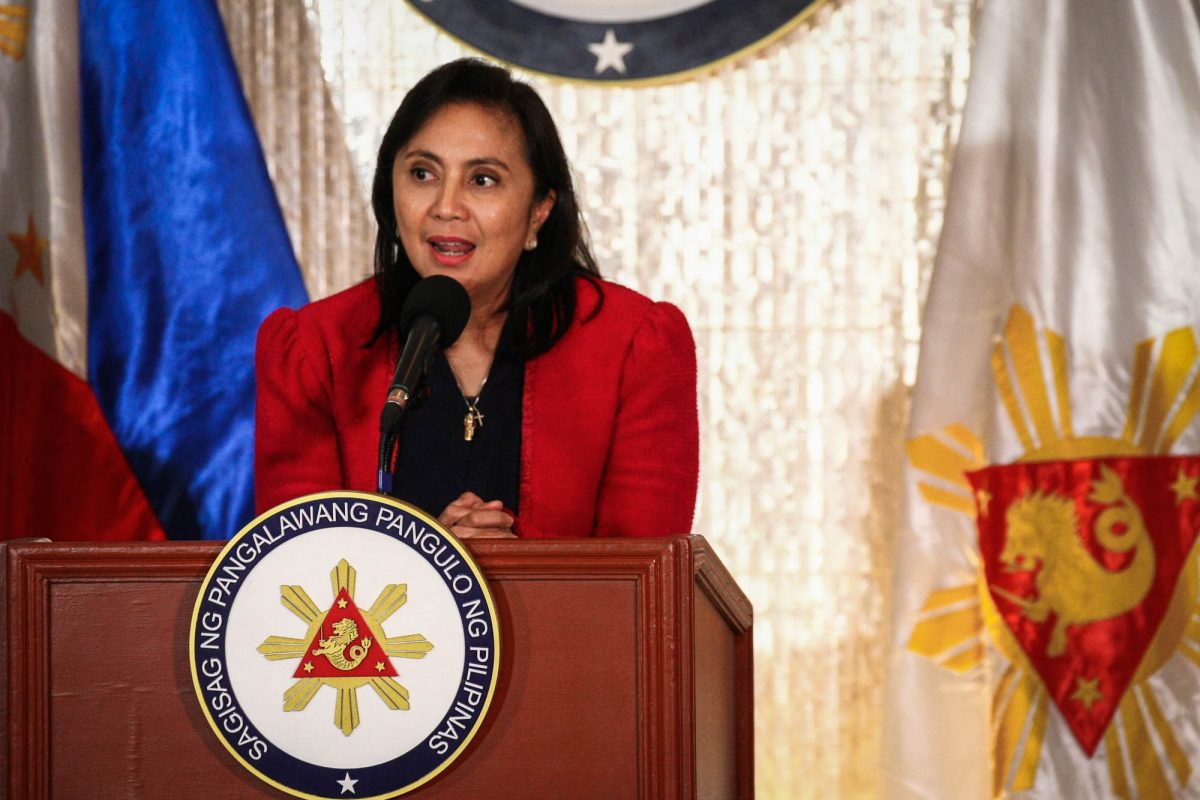MANILA, (Reuters) – Philippine President Rodrigo Duterte has named his main political rival as his “drugs tsar” after she criticised the high death toll his anti-narcotics campaign has caused, but her camp dismissed the offer as a gimmick.
His spokesman on Tuesday confirmed the appointment of Leni Robredo as co-chair of an inter-agency panel on drugs and ordered all other agencies to give her their full support.
“If she has been criticising the drug war as ineffective, then there must be ideas on her mind to make it effective,” presidential spokesman Salvador Panelo said on television.
Human rights groups say Duterte’s crackdown had led to systematic executions and police cover-ups. Police reject that and say the nearly 7,000 people they have killed were armed drug suspects who resisted arrest.
Robredo advocates tackling drugs from a health and social perspective, including prevention and treatment rather than a largely police-centred approach.
The offer to her followed critical remarks she made about the crackdown in an interview with Reuters and subsequently, angering Duterte and triggering a torrent of abuse against her on social media for speaking out against him.
The president remains hugely popular among Filipinos, with an approval rating of more than 80%.
Robredo’s spokesman, Barry Gutierrez, said she was being offered a post that did not exist, describing the gesture as “theatre”. “They should have a serious offer, not the one, in its face, that does not have much content, has questionable legality and part of the ongoing drama,” Gutierrez told reporters.
Robredo would respond herself on Wednesday and present recommendations to Duterte on how the drugs war should be handled, her spokesman added.
Robredo is also the country’s the vice president, elected separately to Duterte, but she has no role in his administration and her party has little power or influence.
DRUG WAR ‘FAILURE’
Allies of the president urged Robredo to take the post, and the Dangerous Drugs Board and police said they welcomed her ideas and perspectives.
Political analyst Ramon Casiple said she was not really in a position to decline.
“There’s the obligation, not just a personal decision. If you were elected and the president sought for help, you will (respond),” he said.
Gutierrez said Robredo was ready to help if Duterte was genuinely asking for it, but his drugs war “clearly has been a failure on several levels” and Duterte was attempting to pass those failures to the vice president.
Activists say police are operating with impunity, with the implied support of a president who once vowed to kill 100,000 dealers, and said he would be happy to slaughter millions of addicts. He has since said he uses hyperbole to stress a point and denies inciting murder.
Estimates of the number killed during the drugs war vary significantly, but thousands of users and alleged dealers have wound up dead outside of official police operations, many in mysterious circumstances.
Robredo on Oct. 23 told Reuters that international help, including from the United Nations and ICC, should be sought if the government refused to change tack and stop abusive police. On Duterte’s approach, she said: “Obviously, it’s not working.”
Gwendolyn Pimentel-Gana of the Philippine Commission on Human Rights was hopeful Robredo could stop the killings.
“Are we going to look at addicts as victims?” she said. “The approach would not be to kill them but to rehabilitate them.”
Duterte reacted with fury to a resolution by the U.N. Human Rights Council to investigate the killings, and responded to a preliminary examination by the International Criminal Court (ICC) by pulling the Philippines out of the organisation.

